Contact center of the Ukrainian Judiciary 044 207-35-46
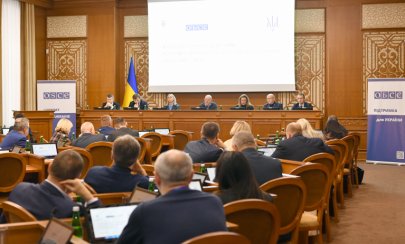
The functioning of the criminal justice system during the war, wartime amendments to the Criminal Code of Ukraine, criminal proceedings under Art. 438 "Violation of the Laws and Customs of War" of the Criminal Code of Ukraine, peculiarities of conducting criminal proceedings on war crimes in absentia, gender-based and sexual violence in the context of armed conflict, problems of qualification of ecocide and other crimes against the environment, as well as trends in the development of criminal legislation of Ukraine in the field of combating corruption, new horizons for the development of the institution of whistleblowers, public interest in plea bargains, case law of the Criminal Cassation Court of the Supreme Court regarding the assessment of provocation of unlawful benefit - these and other issues were discussed by the participants of the International Scientific and Practical Conference "Justice in Ukraine during the War: Problems of Examination of Corruption and War-Related Crimes. VI Kyiv Polylogue" held at the Supreme Court.
Vitalii Hatseliuk, a member of the High Qualification Commission of Judges of Ukraine, moderated Panel I, "Worldview Principles of Combating War and Corruption Crimes in Times of War", and expressed the view that Ukraine currently faces problems in understanding how to counter certain manifestations of war crimes with the help of the General Part of the Criminal Code of Ukraine. Accordingly, it is difficult to create an effective strategy and tactics to counter them. At the same time, it is clear that the legislator's goal is to provide judges and prosecutors with a tool that will help them legitimately address the urgent problems facing the state.
.jpg)
Pavlo Fris, Professor of the Department of Policy in the Field of Crime Control and Criminal Law at the Vasyl Stefanyk Precarpathian National University, spoke on "Criminal and Legal Ideology of Perpetrators of War Crimes". Referring to Ukrainian history, he tried to find an explanation for what motivates individuals to cooperate with the enemy under martial law. The speaker further observed that in most European countries, collaborationism is not differentiated by law and is instead interpreted by lawyers within the context of high treason.
"Our task is to form society's criminal law consciousness and criminal law ideology," the academic concluded.
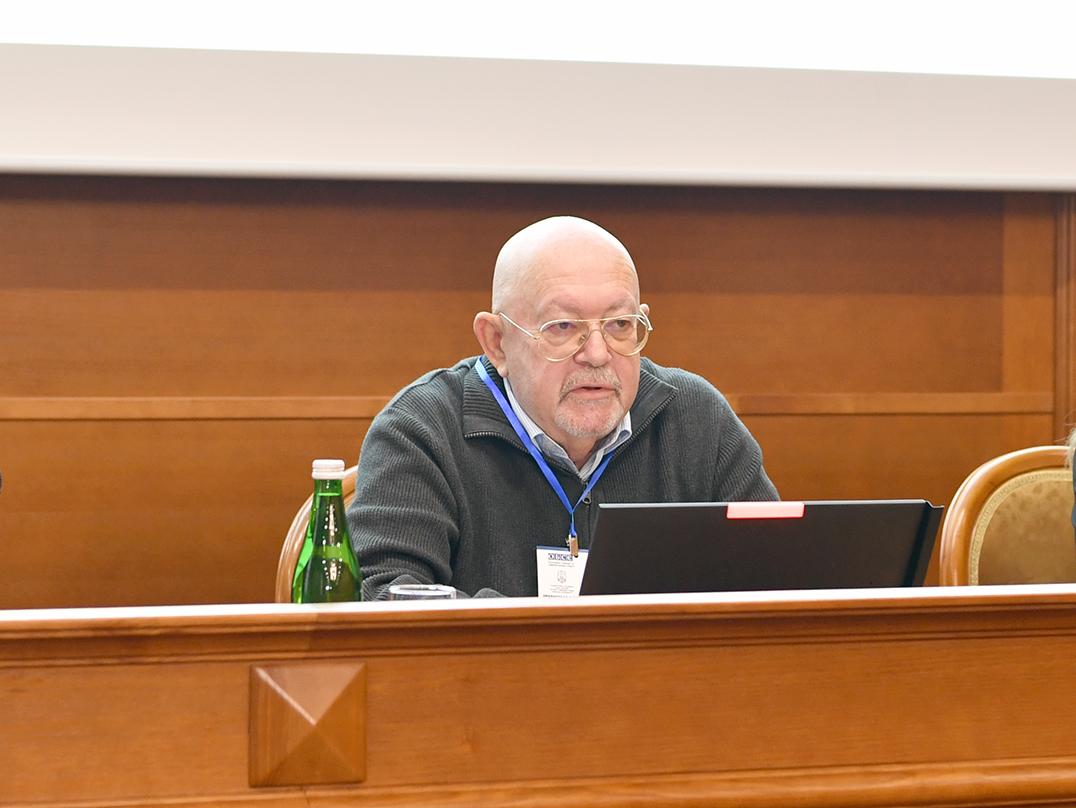
Oleksandr Marchuk, President of the Criminal Cassation Court of the Supreme Court, highlighted the functioning of the criminal justice system during the war. According to him, since the introduction of martial law, the work of criminal courts has generally been aimed at overcoming the challenges of wartime, ensuring the safety of litigants, and exercising the right to judicial protection and access to justice.
The statistics show that, despite all the challenges and difficulties in the conduct of criminal proceedings, the courts have managed to ensure fair, high quality and proper consideration of most criminal cases within a reasonable time. Thus, in 2021, the courts of criminal jurisdiction received a total of 2 million 142 thousand cases and materials, while in 2022 this figure dropped to 1 million 517 thousand. At the same time, 1 million 24 thousand cases and materials were received in the first half of 2023. This indicates that in 2023, despite all the difficulties, a significant number of courts that did not work, and a shortage of judicial personnel, criminal jurisdiction reached the pre-war level. Thus, the judicial system proved to be responsible and resilient in these difficult conditions.
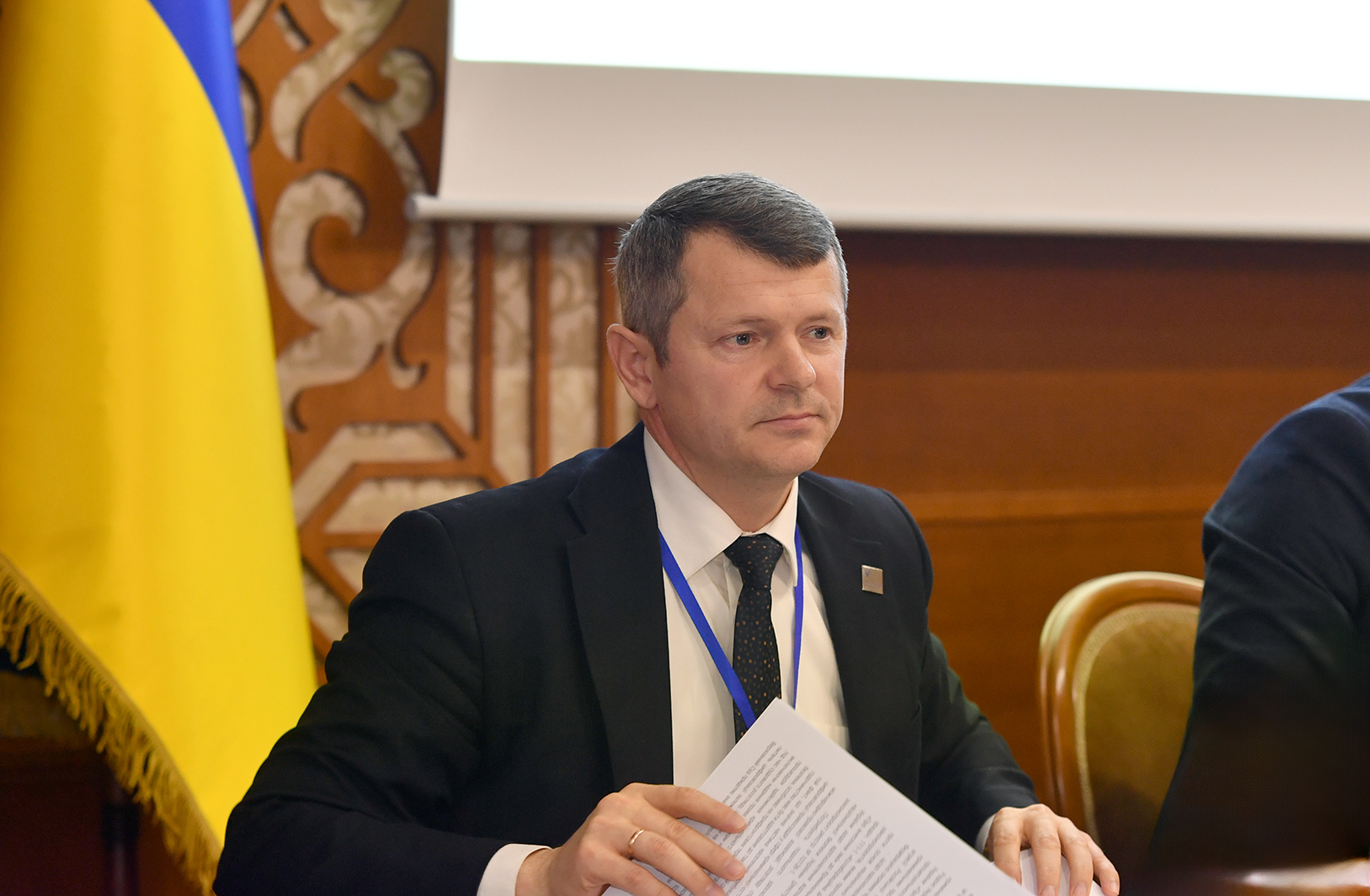
Speaking about the public interest in plea bargaining, Vira Mykhailenko, President of the High Anti-Corruption Court, noted that the institution of plea bargaining in criminal proceedings is quite controversial and that the use of this institution has recently increased. This necessitates its development.
Among other things, the speaker explained that a plea bargain can be understood as a balance between the interest of the suspect/accused to receive a lighter sentence and the request of society to receive something from the accused in return for such a leniency. Vira Mykhailenko also outlined the consequences of concluding the relevant agreements, which are positive for the criminal proceedings in general. These include reducing pre-trial investigation and trial time; saving public resources; reducing the burden on prosecutors, lawyers and courts; deterring the commission of mercenary crimes; and building anti-criminal legal awareness.
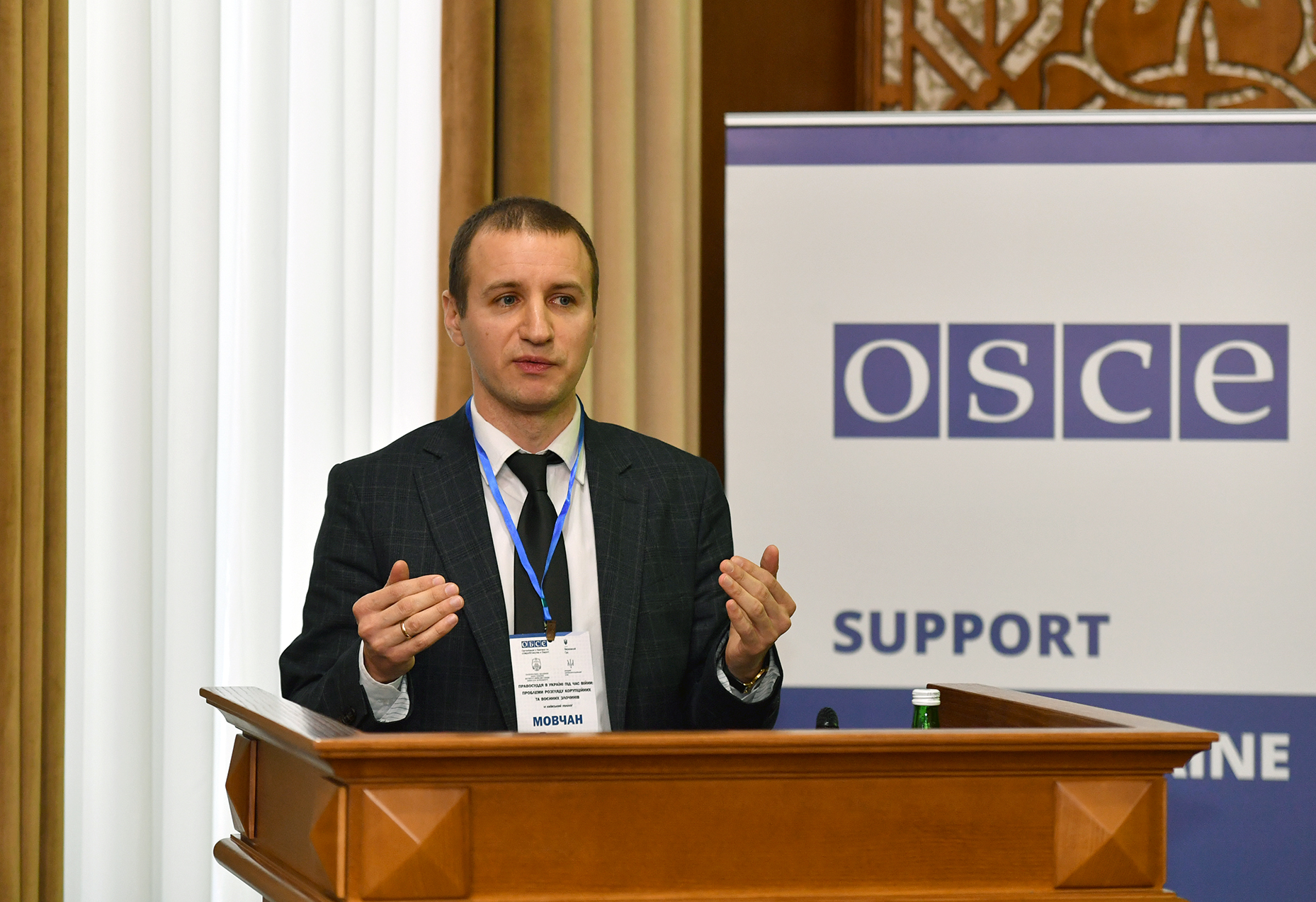
Roman Movchan, Professor of the Department of Constitutional, International and Criminal Law of Vasyl' Stus Donetsk National University, spoke on the issue of "Wartime novelties of the Criminal Code of Ukraine: law-making and law application problems". He examined the effects on the application of law that have emerged since the implementation of amendments to the criminal law during the full-scale invasion. The speaker made a comparative analysis of certain articles of the Criminal Code of Ukraine and gave examples of decisions of national courts in cases with similar circumstances. He also explained the fundamental differences between the concepts of "high treason", "aiding and abetting the aggressor state" and "collaboration".
Oleksandr Vodiannikov, Project Manager of the OSCE Support Programme for Ukraine, spoke on "Crimes against peace: the problem of criminal prosecution". In particular, the speaker noted that the Criminal Code of Ukraine is the only Ukrainian code that directly refers to the fact that it is based on the principles and norms of general international law. Therefore, when applying and interpreting Article 437 "Planning, preparation, initiation and waging of aggressive war" of the Criminal Code of Ukraine, it is crucial to consider the practices established in general international law. According to him, Art. 437 of the Criminal Code of Ukraine is not similar to the provision of the Rome Statute of the International Criminal Court, but it reflects the state of general, i.e. customary, international law that has developed and is in force, including now.
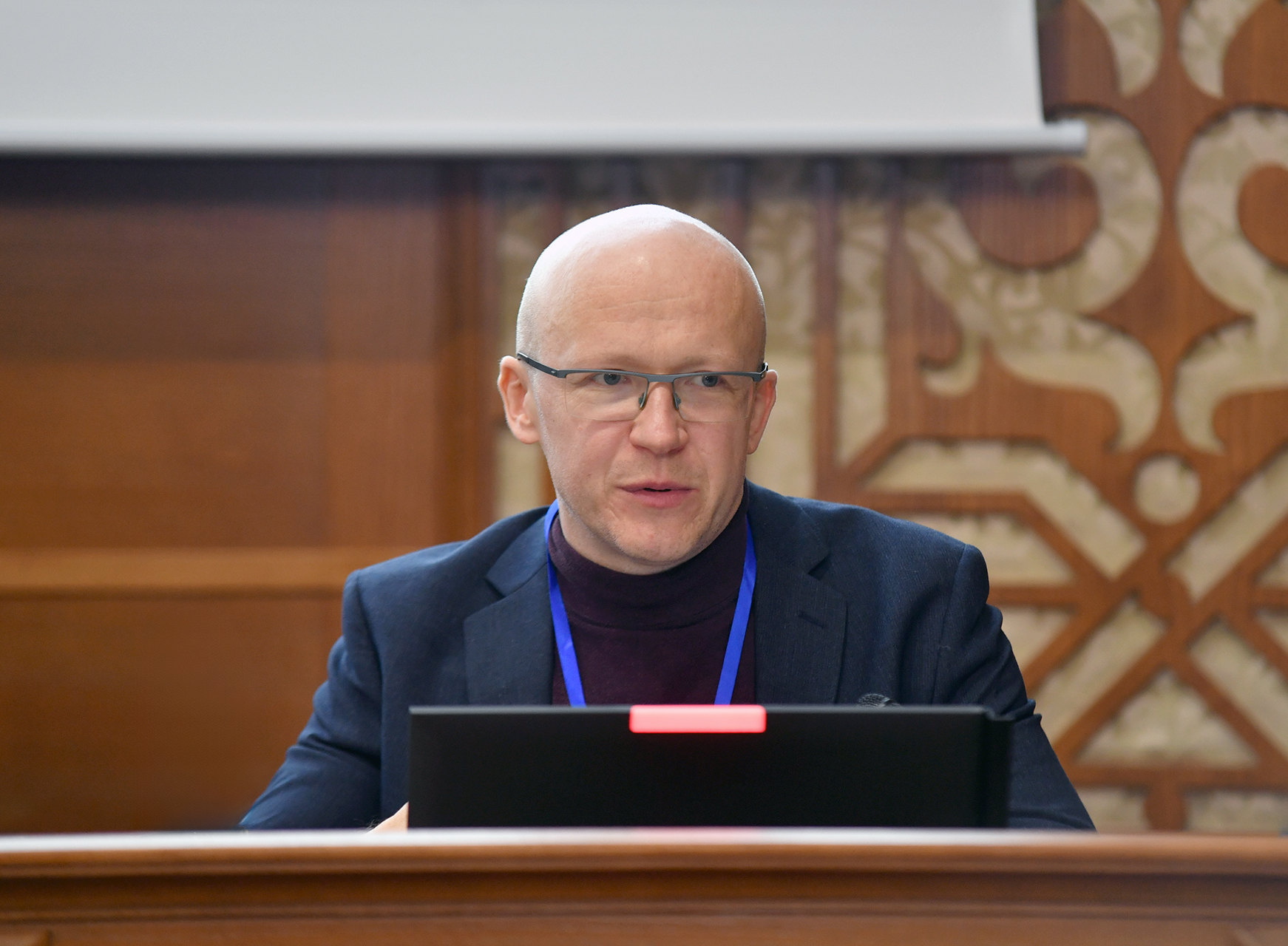 |
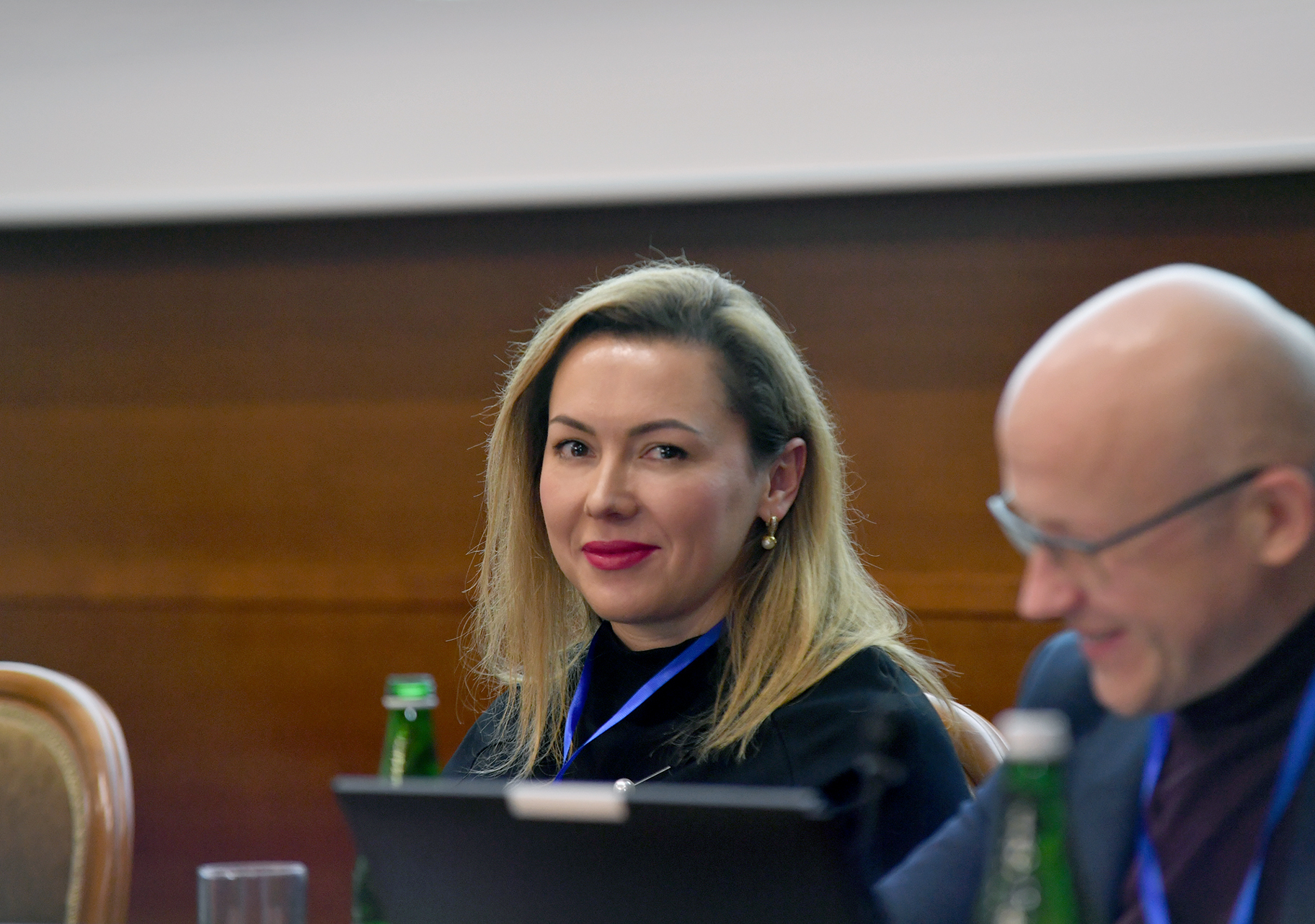 |
Oksana Bronevytska, Associate Professor of the Department of Criminal Law Disciplines at the Faculty of Law of the Lviv State University of Internal Affairs, spoke on gender-based and sexual violence in the context of armed conflict. In particular, she stressed that the prosecution of perpetrators of sexual and gender-based violence during armed conflict is important because it provides for the responsibility of both direct perpetrators of such crimes and military commanders or non-military superiors, which is also enshrined in the Rome Statute of the ICC.
In addition, the speaker said that, according to the statistics of the Prosecutor General's Office, as of 1 September 2023, 231 cases of sexual violence related to the armed conflict have been registered in Ukraine since the beginning of the full-scale invasion of Russia. The victims include 149 women and 82 men. However, according to Oksana Bronevytska, the actual number of such cases is much higher.
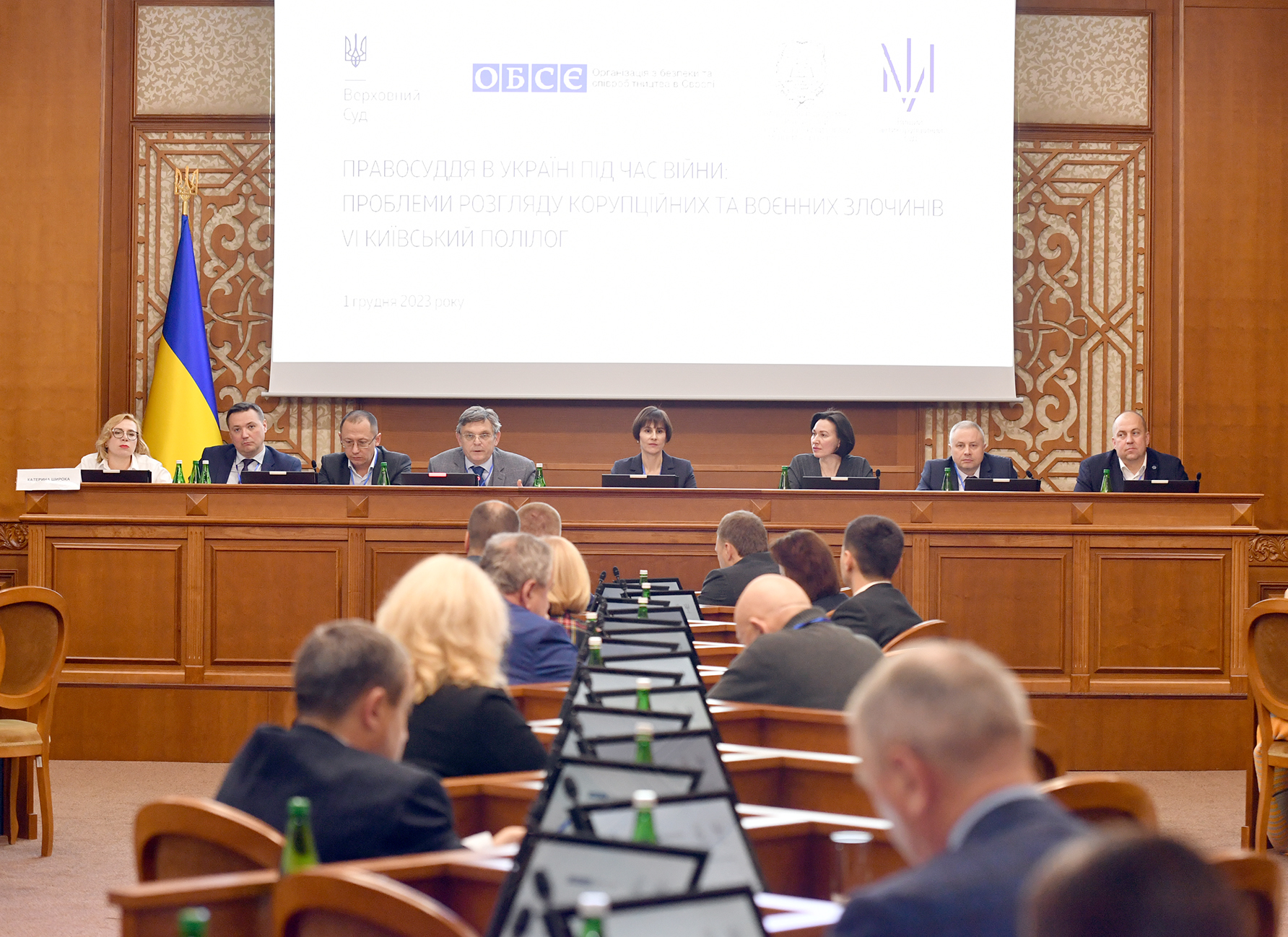
Panel II, "Combating Corruption Crimes in Wartime", was moderated by Kateryna Shyroka, Judge of the High Anti-Corruption Court. She acknowledged that corruption is a current global issue; however, she highlighted that Ukraine has shown some advancement in combating corruption crimes, as per the latest Corruption Perceptions Index, which is calculated by Transparency International. The judge also expressed the hope that the combined efforts of legal practitioners and theorists would make this fight even more effective.
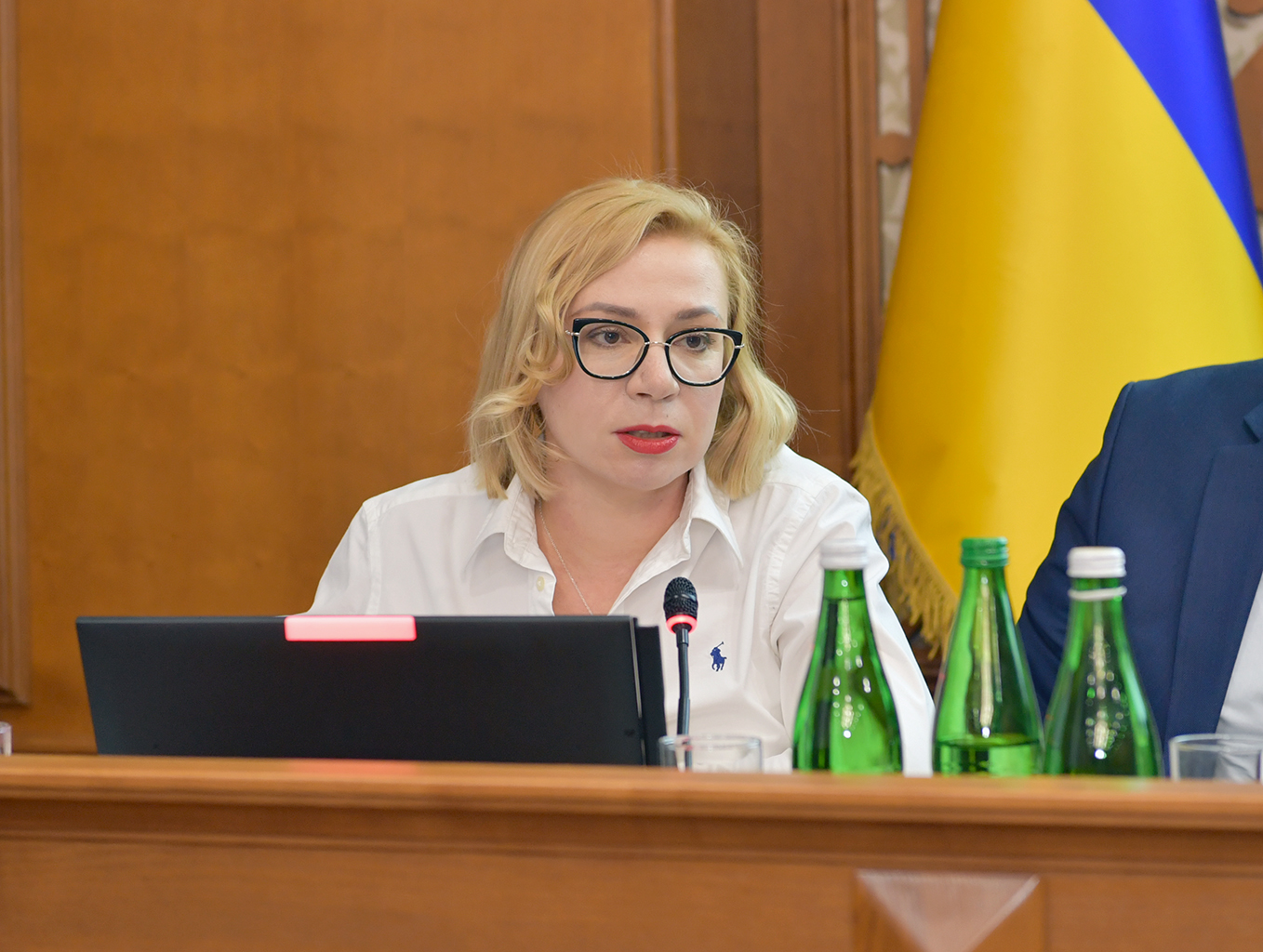
Nataliia Antoniuk, Vice President of the Criminal Cassation Court of the Supreme Court, spoke on the subject of "Case law of the Criminal Cassation Court of the Supreme Court on the assessment of provocation of unlawful gain". The judge recalled that provocation to commit a crime can only be considered when the law enforcement authorities have artificially created a situation to induce a person to commit a crime, as previously stated by the Supreme Court. The speaker also analysed the case law of the Criminal Cassation Court of the Supreme Court and the ECtHR in cases of this category.
According to Nataliia Antoniuk, one of the key factors in the success of the fight against corruption is to answer the main questions about the provocation, its presence or absence. The judge highlighted that the number of cases on corruption and corruption-related criminal offenses considered by the Supreme Court significantly rose in 2023.
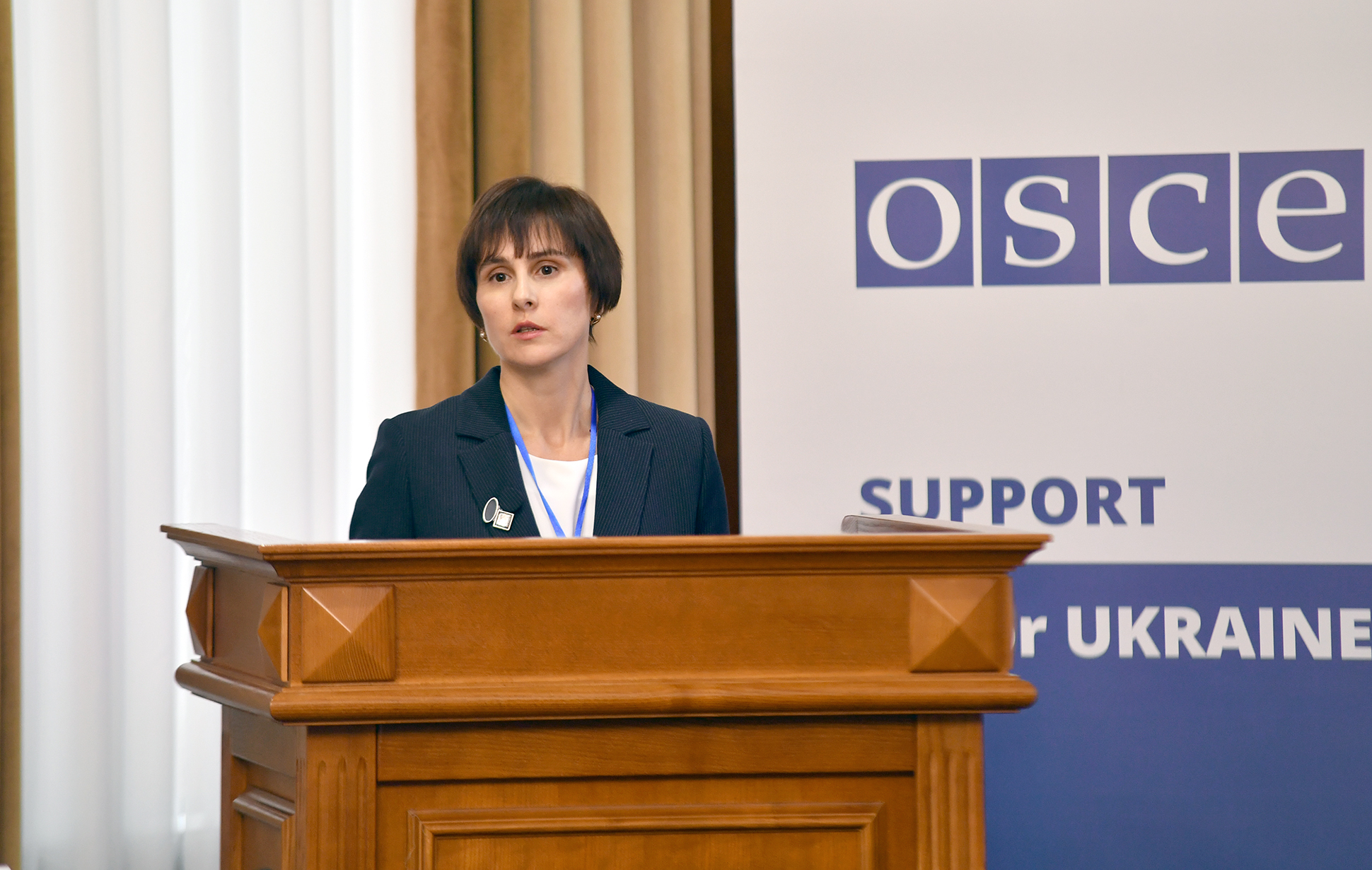
Arkadii Bushchenko, Supreme Court Judge of the Criminal Cassation Court, chose the topic "Some aspects of the admissibility of evidence in the practice of the Supreme Court". He drew the attention of the participants to the fact that the basic article for the inadmissibility of evidence is Article 233 of the Criminal Procedure Code of Ukraine ("Breaking into a person's home or other property"), the principles of which are based on Article 30 of the Constitution of Ukraine and Article 8 of the Convention for the Protection of Human Rights and Fundamental Freedoms. It is this article that the parties to the proceedings invoke when they demand that the results of a search be declared inadmissible. The judge analysed the case law of the Supreme Court and the ECtHR in cases related to breaking into a person's home and stressed that it was important to understand whether there were reasons to consider the premises private property, as this may also affect the outcome of the proceedings. Separately, he stressed the significance of acquiring voluntary informed consent prior to conducting a search.
On the specifics of the legality of detention, the judge explained that it was not necessary to obtain a warrant for a personal search during detention, as the search was part of the general procedure.
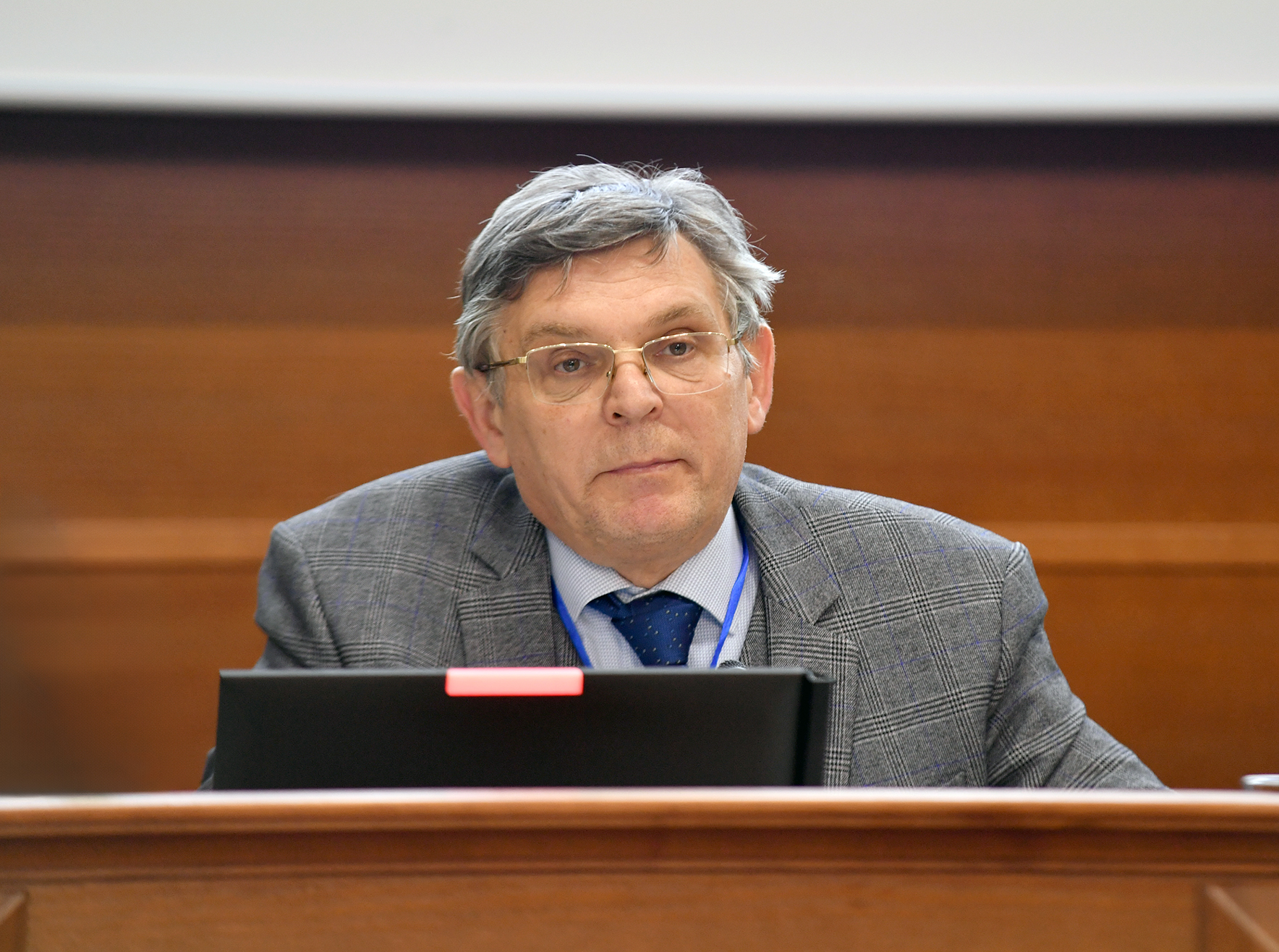
Oleksandr Marin, Head of the Research Laboratory of the Lviv State University of Internal Affairs, highlighted the trends in the development of criminal legislation in Ukraine in the field of combating corruption. He said that relevant trends can be identified in two ways: politically (theoretically) and empirically (identifying trends based on analysis of recent legislative changes).
In connection with the development of anti-corruption legislation, the speaker focused on the State Anti-Corruption Programme for 2023-2025, approved by the Cabinet of Ministers of Ukraine on 4 March 2023. He analysed the content of the criminal law measures set out in this Programme and shared his views on the feasibility of introducing some of the amendments to criminal law proposed in the Programme, in particular, with regard to harmonising the concepts of "corruption criminal offence" and "corruption-related criminal offence" set out in Article 45 of the Criminal Code of Ukraine with other legislative acts.
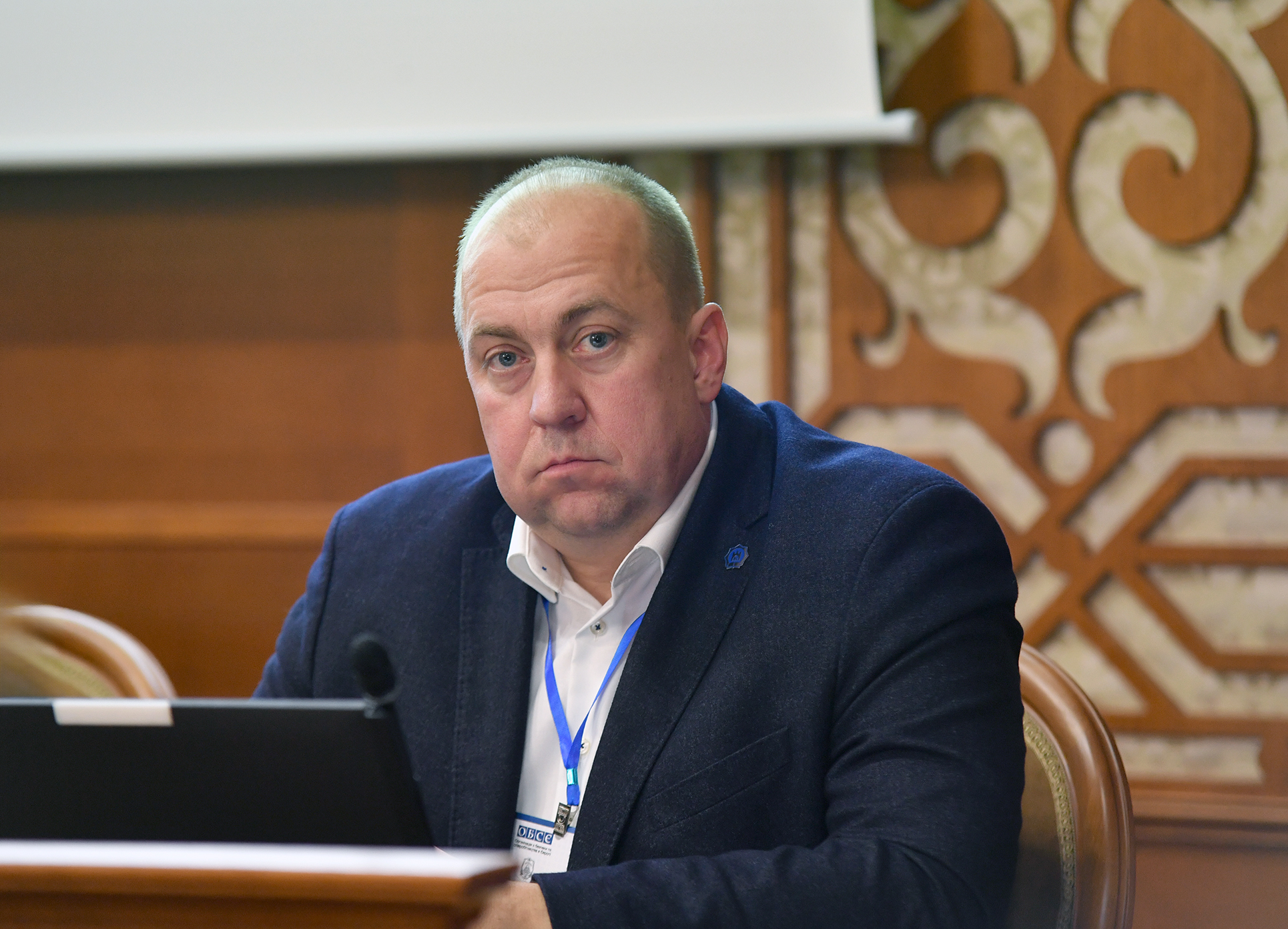
Judge of the Appellate Chamber of the High Anti-Corruption Court, Ihor Panaid, discussed the criminal law evaluation of illicit enrichment in relation to civil forfeiture and sanctions.
The speaker described some of the criteria of an asset belonging to a special subject, defined in the case law on civil forfeiture, in particular: the role of a special subject in the selection of an asset to be acquired by another person on behalf of (or at the direction of) and in the interests of the special subject; the relationship between the real owner and the nominal acquirer (family, friendship, official relations); the financial status of the acquirer, his need for the asset and the ability not only to acquire the property but also to bear the costs of its maintenance on his own; significant one-time or periodic improvement of the nominal owner's property status without reasonable and legal grounds; existence of relations between the real and nominal owner (communication regarding the asset, documentary nature (orders, powers of attorney, pledge), financial, moral obligations, fear, physical restraint).
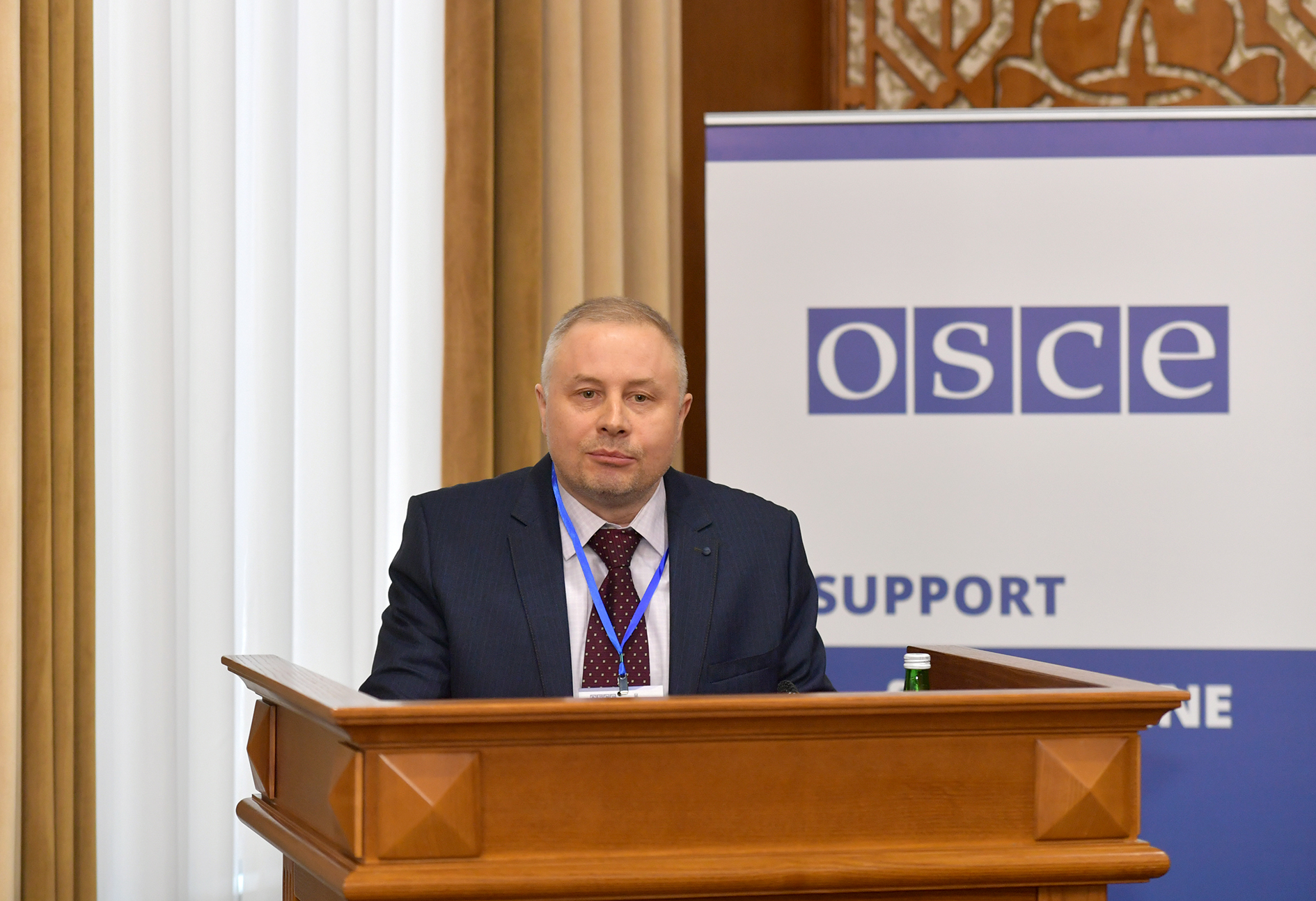
The issue of separate proceedings against aiders, organisers and principals in complex, multi-layered corruption schemes was the subject of a speech by Olena Tanasevych, a judge of the High Anti-Corruption Court. According to her, since 2019, the HACC has received criminal proceedings on obtaining unlawful benefit, abuse of office, misappropriation or embezzlement of property, in which the case law has been more or less established. At the same time, however, there were also proceedings of so-called systemic corruption, i.e. crimes that are ongoing and committed in several episodes according to the same scenario and algorithm over a certain period of time (which in most cases coincides with the period of a particular official or group of such persons in a particular position or positions). These criminal proceedings are large in scope. And when it comes to systemic corruption, such crimes are always committed in complicity: dozens or even hundreds of people are involved in the commission of the crime. There were cases when some of the participants died, some went abroad, some are hiding in Ukraine or left the country unofficially.
The speaker described the problematic issues that arose in such situations and how the court resolved them, for example, when the defence argued that it was impossible to hold a separate trial of an accomplice without a guilty verdict against the principal, since the basis for qualifying the actions of an accomplice is always the actions of the principal or principals, as all their actions are integrated, interconnected and somehow stem from the actions of the principal. The judges also considered how to present the factual circumstances of the principal's actions in the judgement on the accomplice in a way that respects the presumption of innocence and does not damage the person and his or her reputation. These issues are currently pending resolution by the court of cassation.
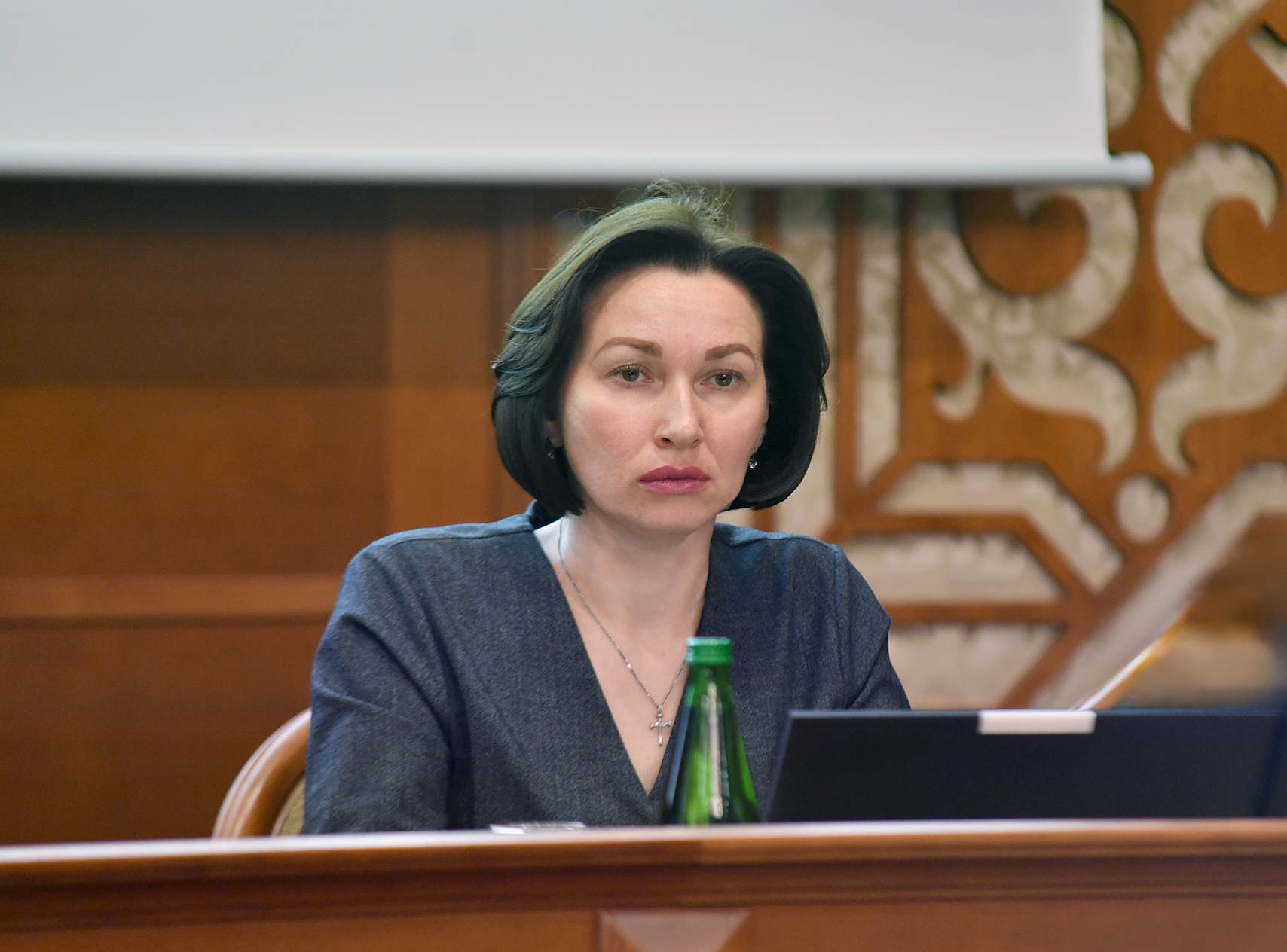
Judge of the High Anti-Corruption Court Oleksii Kravchuk spoke about new horizons for the development of the whistleblower institution. The speaker noted that two months ago the HACC had issued the first judgment with the payment of remuneration to a whistleblower (HACC judgment of 2 October 2023 (by agreement) in case No. 991/2288/21). The second decision on the payment of remuneration to a whistleblower is the judgment of the Appellate Chamber of the HACC of 9 November 2002 in case No. 991/2197/22.
Oleksii Kravchuk also outlined three points that the court takes into account when determining the whistleblower's remuneration. These include the personal nature of the information (based on personal knowledge), the importance of the information (contributing to proving at least one of the circumstances of the crime), and the absence of prohibitions on the payment of rewards (the whistleblower has entered into a plea bargain or is an accomplice; could have reported corruption within the scope of his or her official duties).
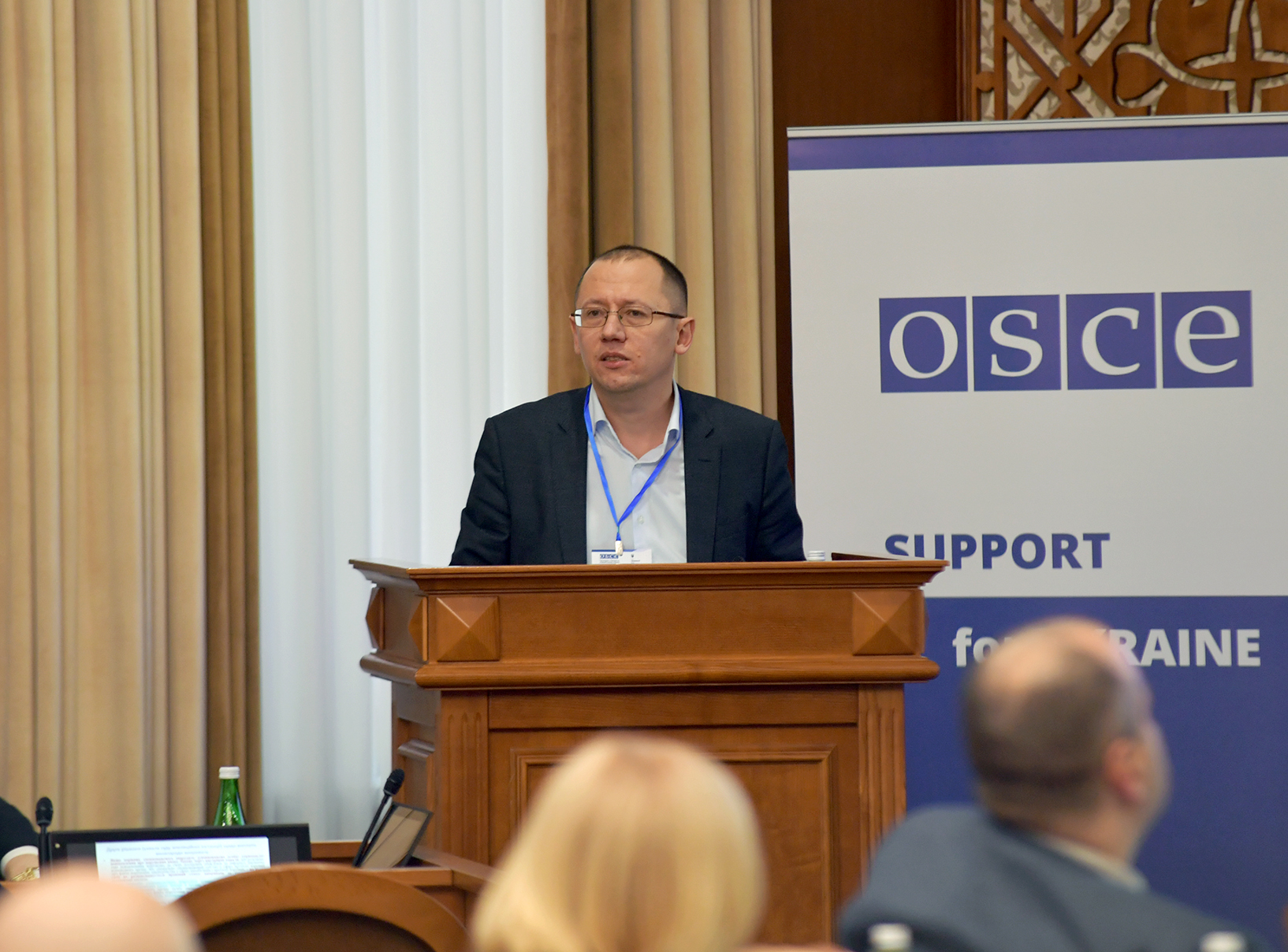 |
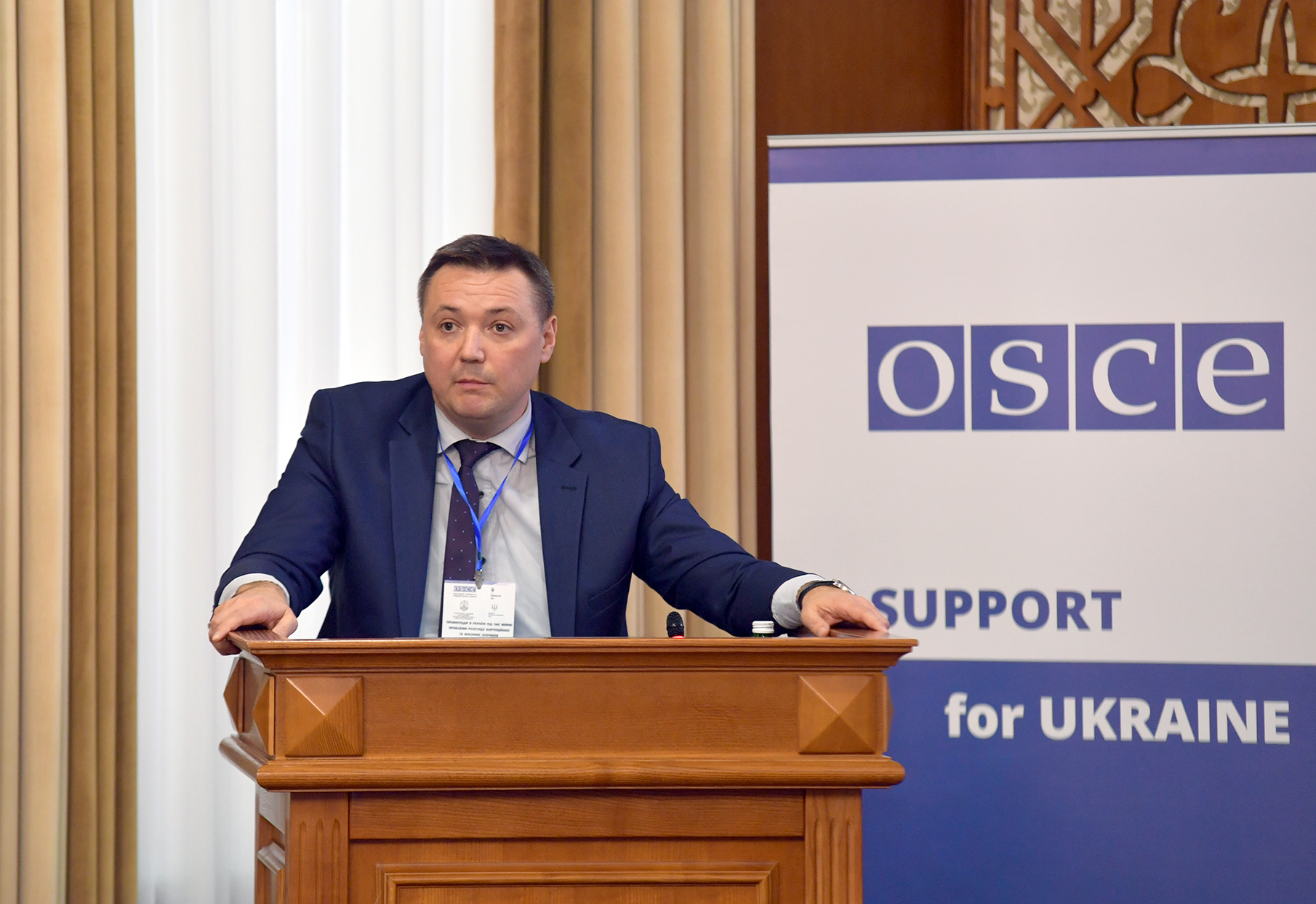 |
Oleksii Horokh, Associate Professor of the Department of Criminal and Criminal Procedural Law at the National University of Kyiv-Mohyla Academy, spoke about the difference between a whistleblower and a provocateur in cases of obtaining an unlawful benefit by an official. First, he proposed a definition of "agent provocateur", formulated through a systematic interpretation of the law, as a person (private or public) who, by persuasion, bribery, threat, coercion, blackmail or otherwise, induces a public official to accept an offer, a promise or an unlawful advantage, with a view to exposing the person who accepted the offer, the promise or the advantage.
The speaker also focused on the practice of the Supreme Court and the HACC in investigating provocation to commit a crime. Regarding the distinction between a whistleblower and an agent provocateur, Oleksii Horokh outlined the criteria for such a distinction. They are based, in particular, on the analysis of the personal and professional characteristics of the whistleblower; the relationship between the whistleblower and the official or third party in whose interests he or she acts; the whistleblower's behaviour during the trial, etc.
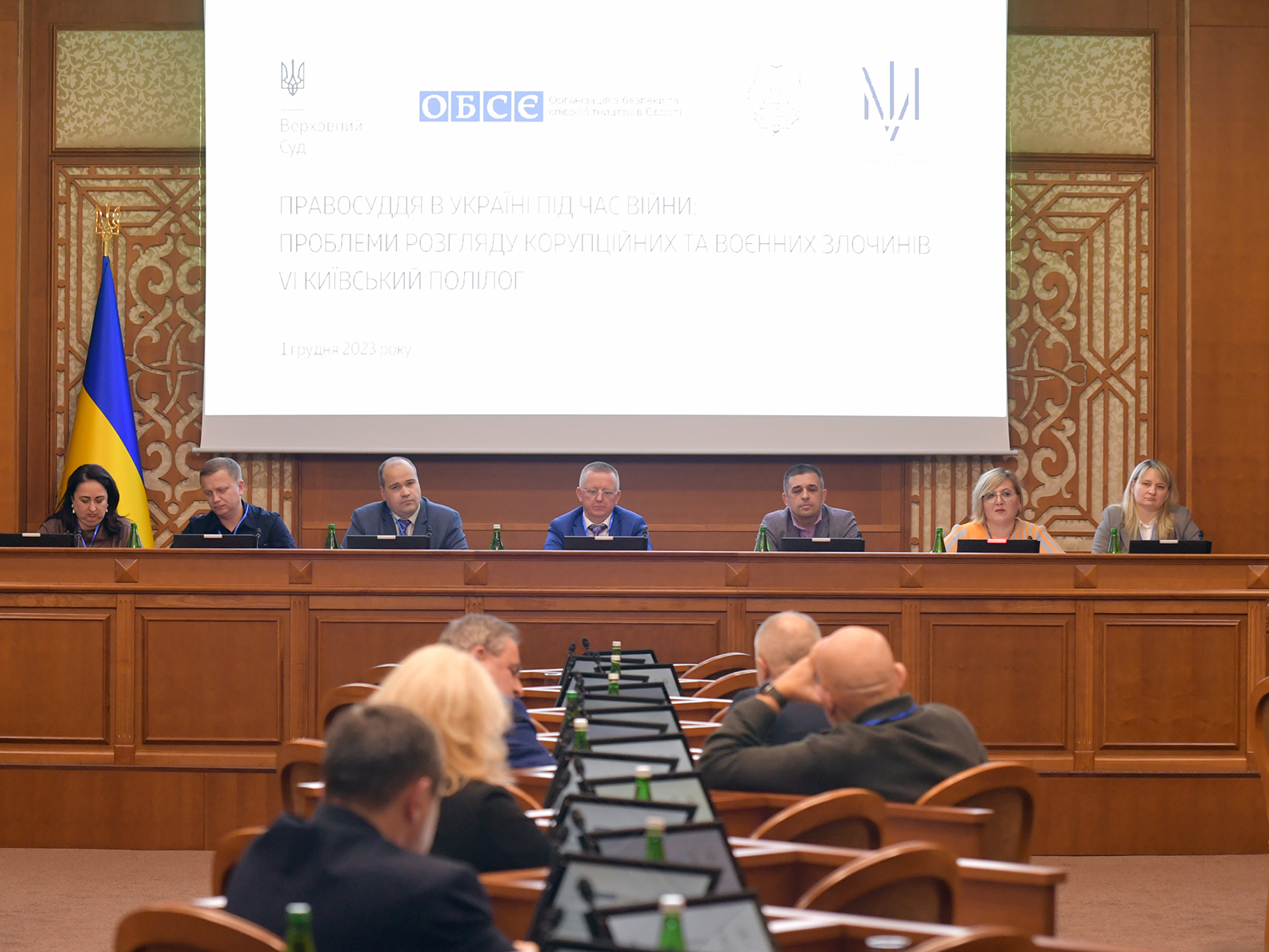
Moderating the third thematic discussion "Criminal Liability of War Criminals: International Standards, Realities of Court Practice and Prospects for Implementation", Oksana Kvasha, Member of the High Council of Justice, stressed the importance of taking measures to ensure that no war criminal who committed atrocities on the territory of Ukraine goes unpunished.
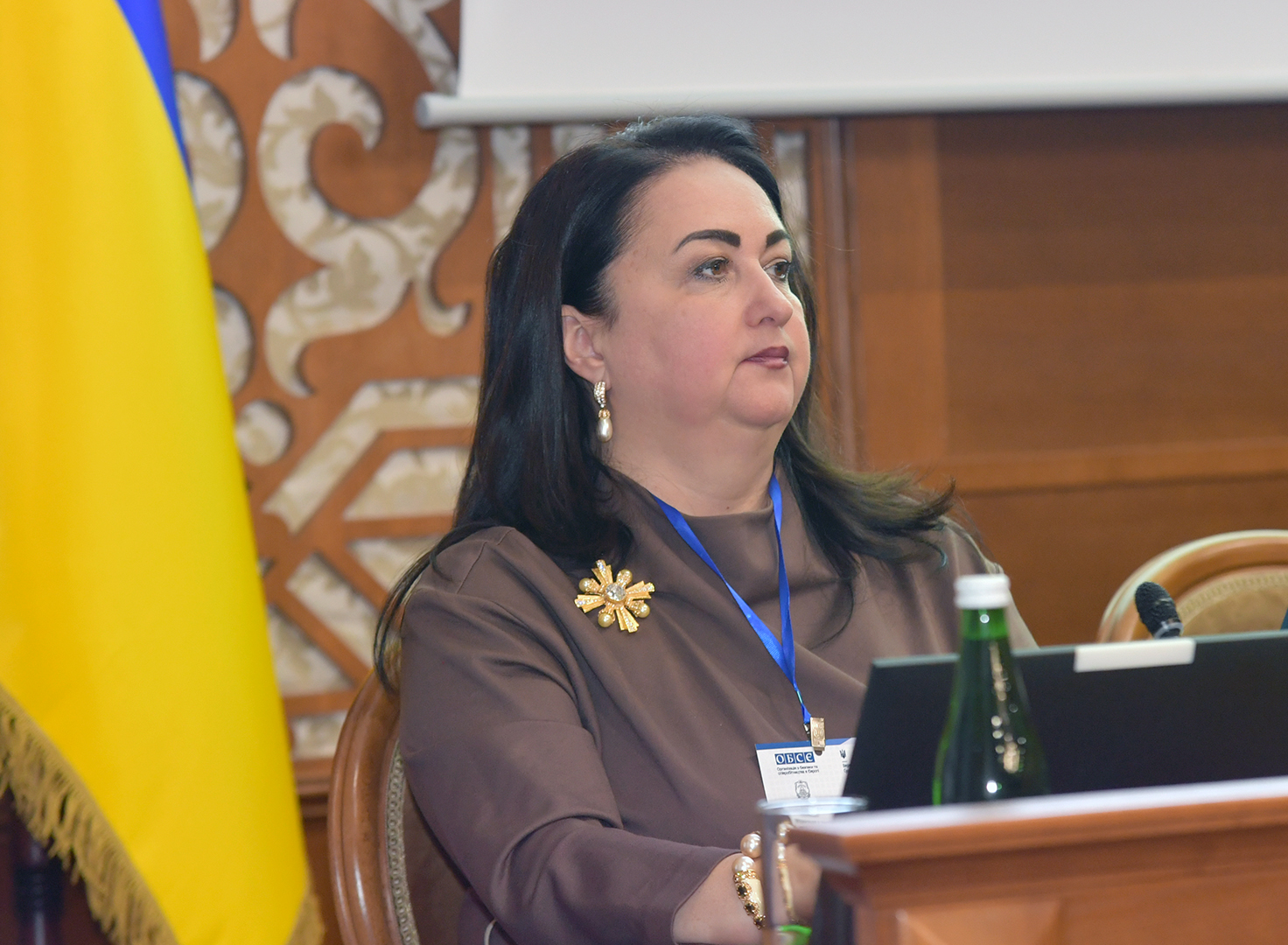
Mykola Mazur, Supreme Court Judge of the Criminal Cassation Court, told the participants of the event about the peculiarities of criminal proceedings for war crimes in absentia, a special procedure of criminal proceedings (pre-trial investigation and trial) in the absence of the accused. The number of cases being considered in this way in national courts is currently increasing and, according to the judge, will continue to do so in the coming years. That is why it is so important to ensure their quality consideration now and take into account the difficulties that may arise. In particular, inadequate defence of the accused may affect the quality of the proceedings and, consequently, the further consideration of the case. Mykola Mazur cited the case of Sanader v. Croatia, considered by the ECtHR, as an example. In this case, due to the failure to meet all the requirements for the administration of justice, a person convicted of a war crime by national courts not only went unpunished, but also received compensation from the state that suffered as a result of that person's actions.
Therefore, in order to avoid future lawsuits against Ukraine and to ensure that war criminals are punished, the legal system must ensure that all procedures are followed to the fullest extent possible.
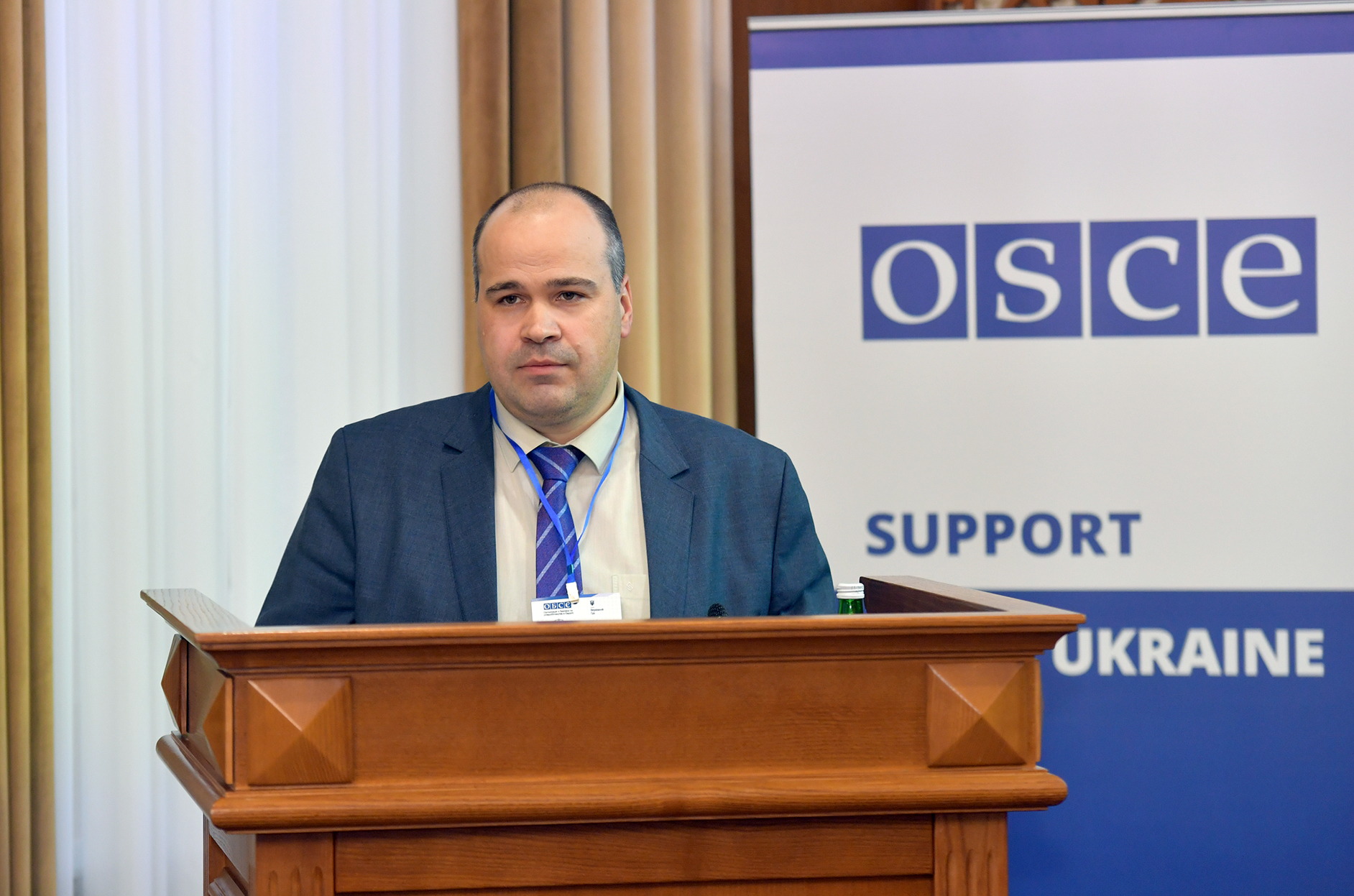
The Acting Head of the Department of Criminal Law, Criminology and Judiciary of the V.M. Koretsky Institute of State and Law of the National Academy of Sciences of Ukraine, Zoia Zahynei-Zabolotenko, presented some results of the monitoring analysis of final court decisions, including those of appeal courts, in criminal proceedings under Article 438 "Violation of the laws and customs of war" of the Criminal Code of Ukraine.
According to her, in general, monitoring of court decisions helps to track the development of case law and the quality of court decisions. The speaker noted the positive dynamics of the quality of court decisions. She believes that the training of Ukrainian judges, particularly in the field of international humanitarian law, has made a significant contribution.
With regard to sentencing under Art. 438 of the Criminal Code of Ukraine, Zoia Zahynei-Zabolotenko stressed in particular that it is important for courts when imposing a sentence under this article, as well as for pre-trial investigation bodies, to prove such a feature of criminal offences as repetition.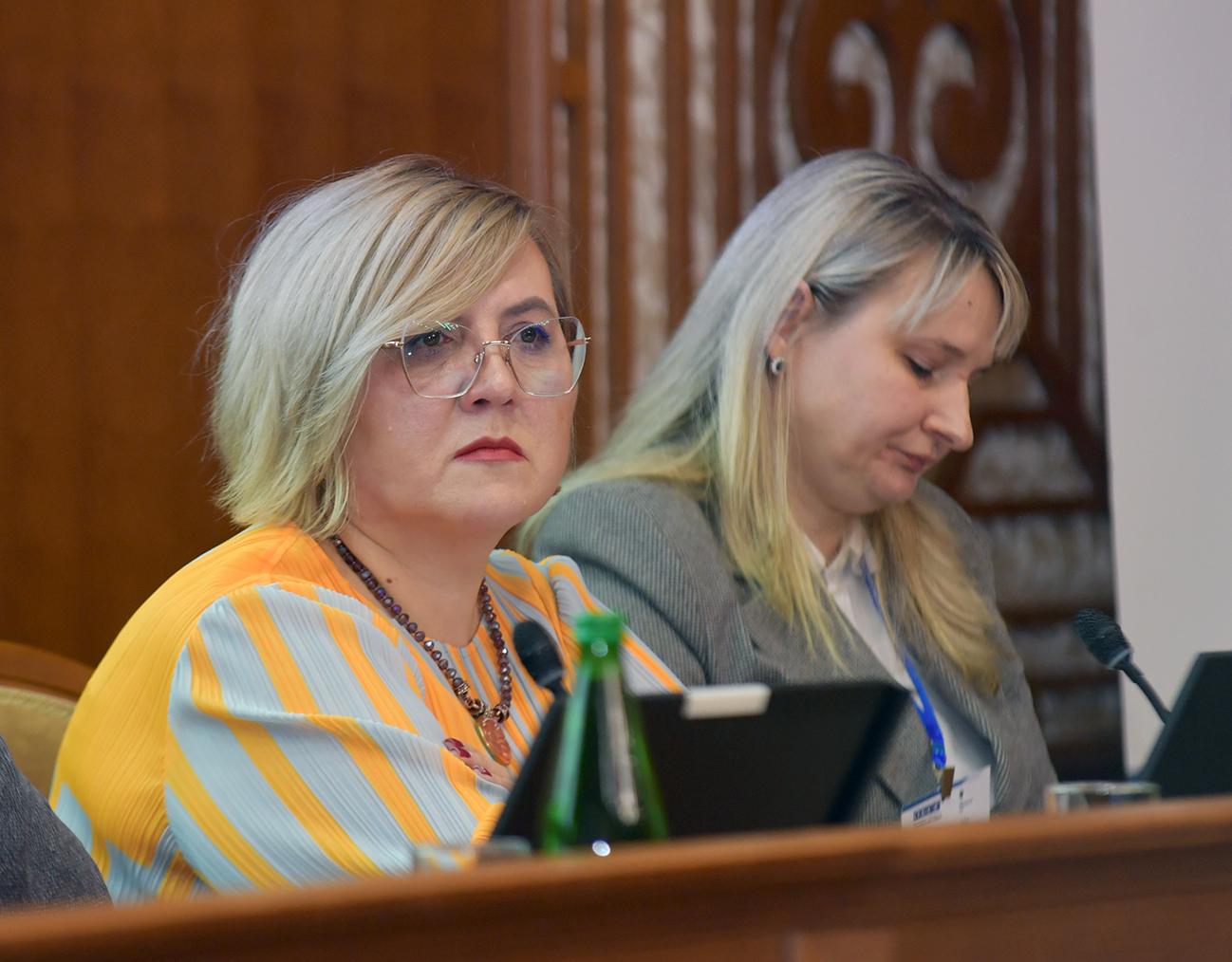
Mykola Kovtunovych, Supreme Court Judge of the Criminal Cassation Court, spoke about the peculiarities of criminal law qualification under Article 438 of the Criminal Code of Ukraine. He noted that more than 100,000 criminal proceedings have already been registered for war crimes and it is necessary to ensure that every war criminal is fairly punished. The speaker pointed out that the statute of limitations does not apply to these crimes, so those who have not been punished now will be punished sooner or later. Mykola Kovtunovych also stressed the importance of fair, impartial and reasoned judicial decisions in accordance with international and European standards. One of the central positions in such a decision should be the definition of the issue of criminal qualification, which should be unambiguous, clear, precise and exhaustive.
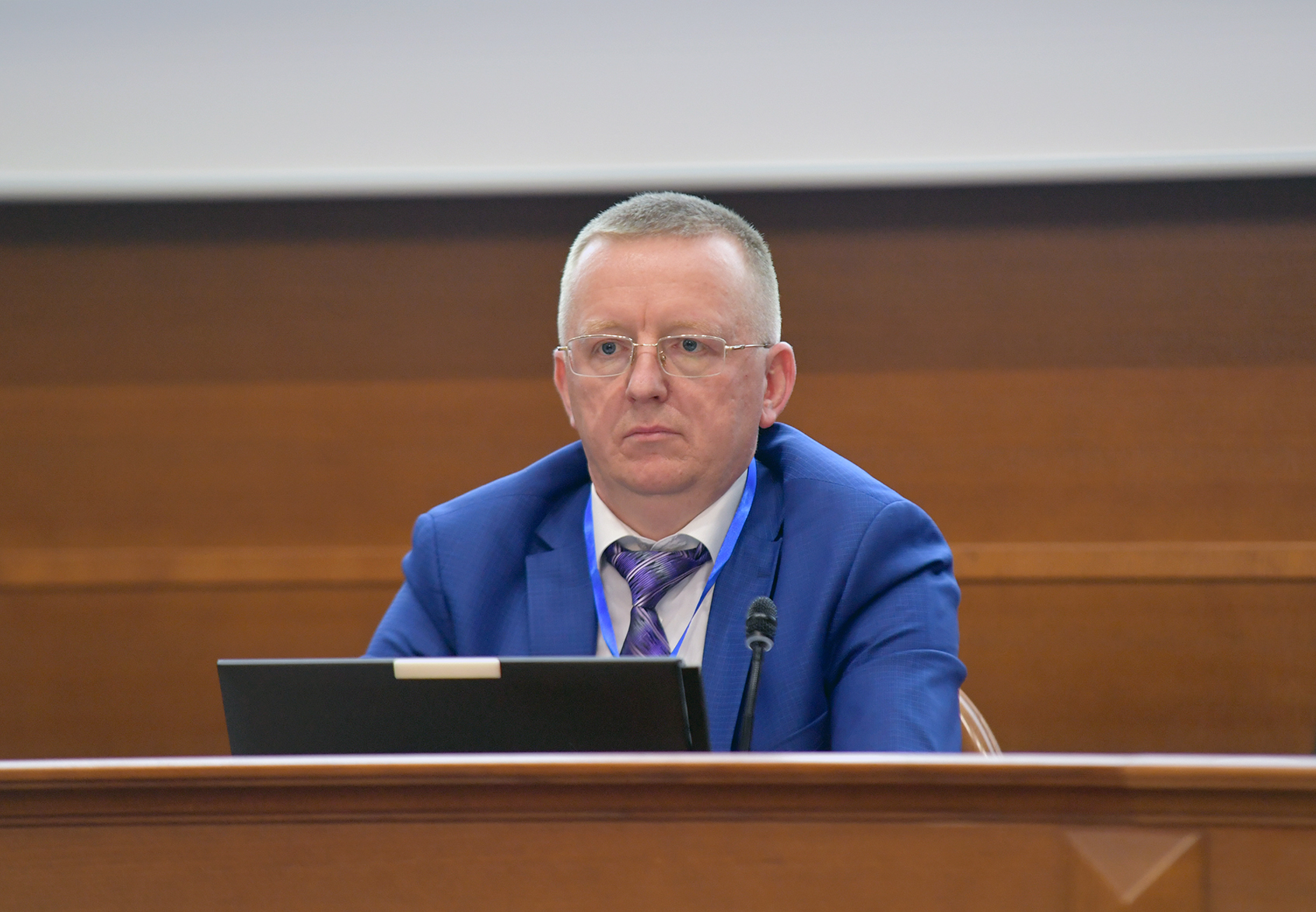
Andrii Cherniak, Rector of the National Academy of the Security Service of Ukraine, spoke on current issues of criminal liability for war crimes. He noted that one of the main tasks of the Security Service of Ukraine is to document all war crimes committed in Ukraine. It is not only the extremely high number of crimes that is striking, but also their diversity - unlawful acts are committed against both military personnel and civilians. Several electronic databases have already been created to collect, record and classify crimes, including OTPlink (ICR). Special efforts are being made to bring to justice the owners of private military companies involved in the military conflict.
The speaker also noted that many countries around the world are studying the Russian-Ukrainian war and changing their legislation in the light of it. He noted that Ukrainian legislation also needs to be amended, namely Article 438 of the Criminal Code of Ukraine, which will make it possible to bring all those responsible, including the political leadership of the aggressor country, to justice.
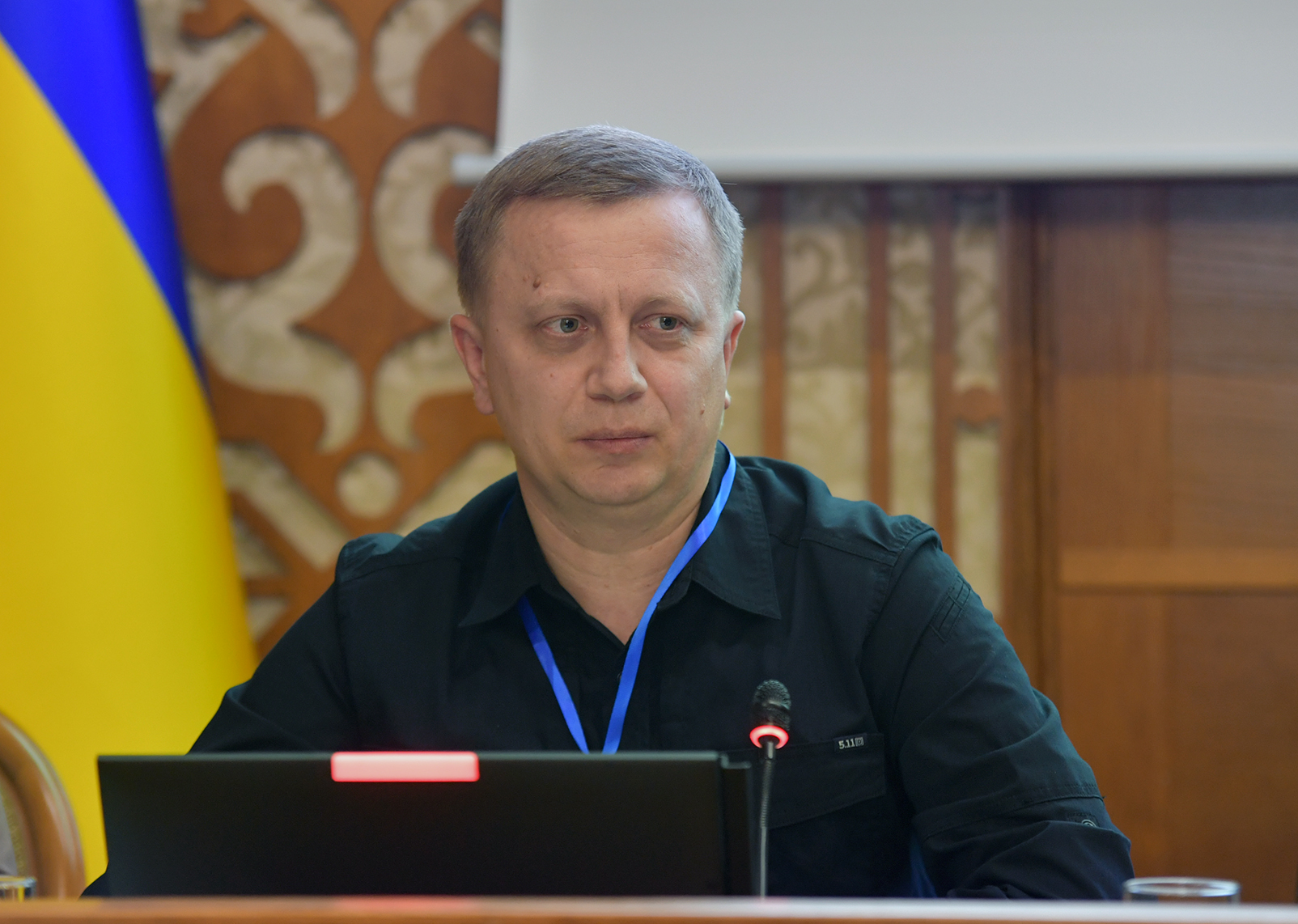
Vitalii Dubas, Judge of the High Anti-Corruption Court, highlighted the problematic aspects of criminal proceedings in case the court composition is changed and how to overcome them. The speaker recalled Art. 319 "Invariability of the court composition" of the Criminal Procedure Code of Ukraine, which stated, in particular, that after the replacement of a judge, the trial would start from the beginning, except as provided for in part 2 of Art. 319 and Art. 320 of this Code. He spoke about the reasoning of court decisions when the court decides to continue the trial after replacing the judge, citing an example from the Supreme Court's case law.
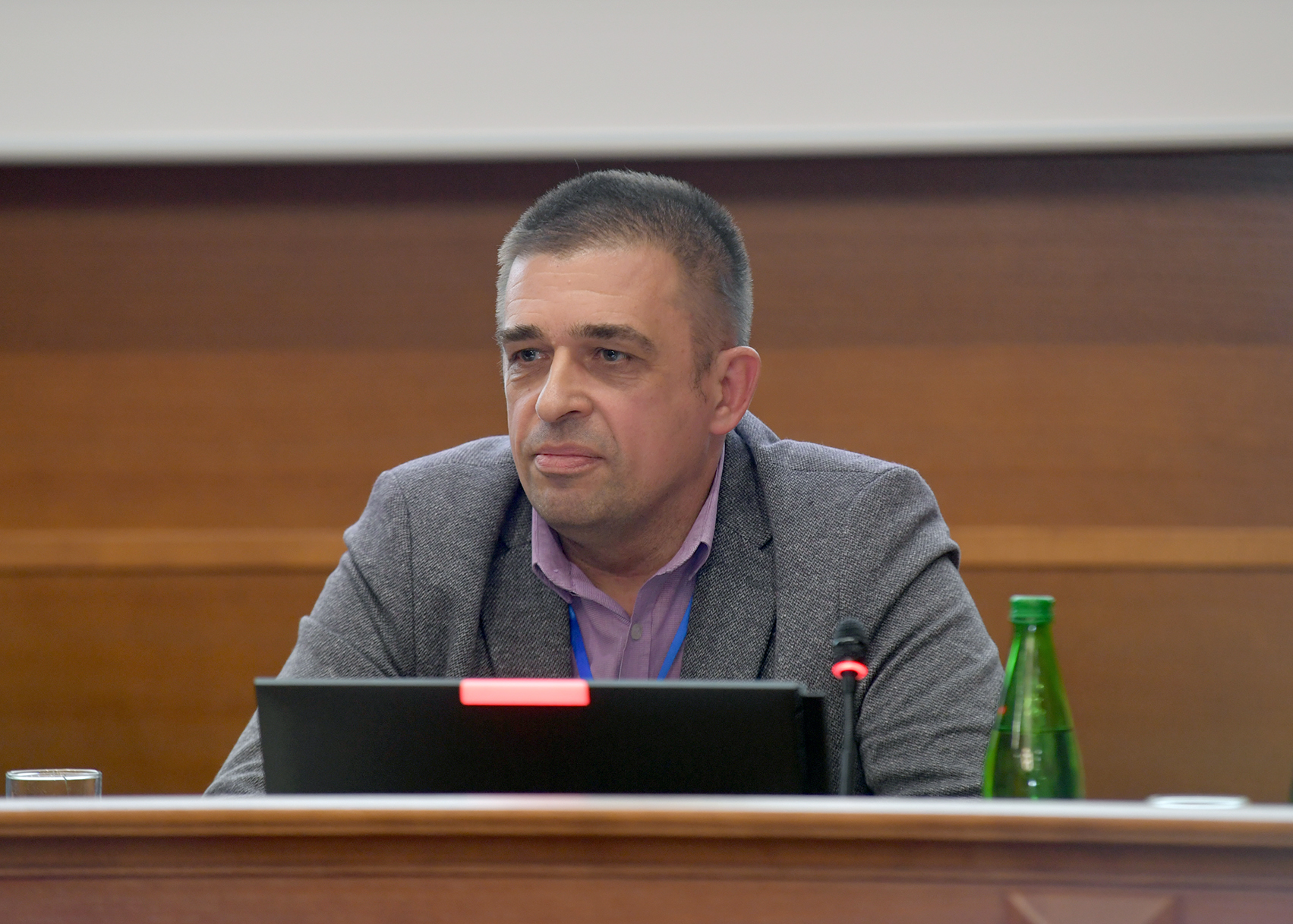
Inna Berdnik, a consultant at the Analytical Department of the Prosecutors' Training Centre of Ukraine, focused on the problems of qualifying ecocide and other crimes against the environment. According to the speaker, these problems are the result of gaps in Ukraine's criminal legislation.
Inna Berdnik explained that crimes against the environment in the context of international armed conflict should be qualified under Article 438 ("Violation of the laws and customs of war") and/or Article 441 ("Ecocide") of the Criminal Code of Ukraine. If Russian military personnel have committed armed attacks on industrial or other facilities, the damage to which may lead or has led to an environmental disaster, the actions of such persons should be classified under a combination of crimes under Art. 438 and Art. 441 of the Criminal Code of Ukraine. She also provided statistics on crimes against the environment in the context of armed conflict, registered in the Unified Register of Pre-trial Investigations (as of November 2023), according to which 15 of them are classified under Article 441 of the Criminal Code of Ukraine, and 271 - under Article 438 of this Code.
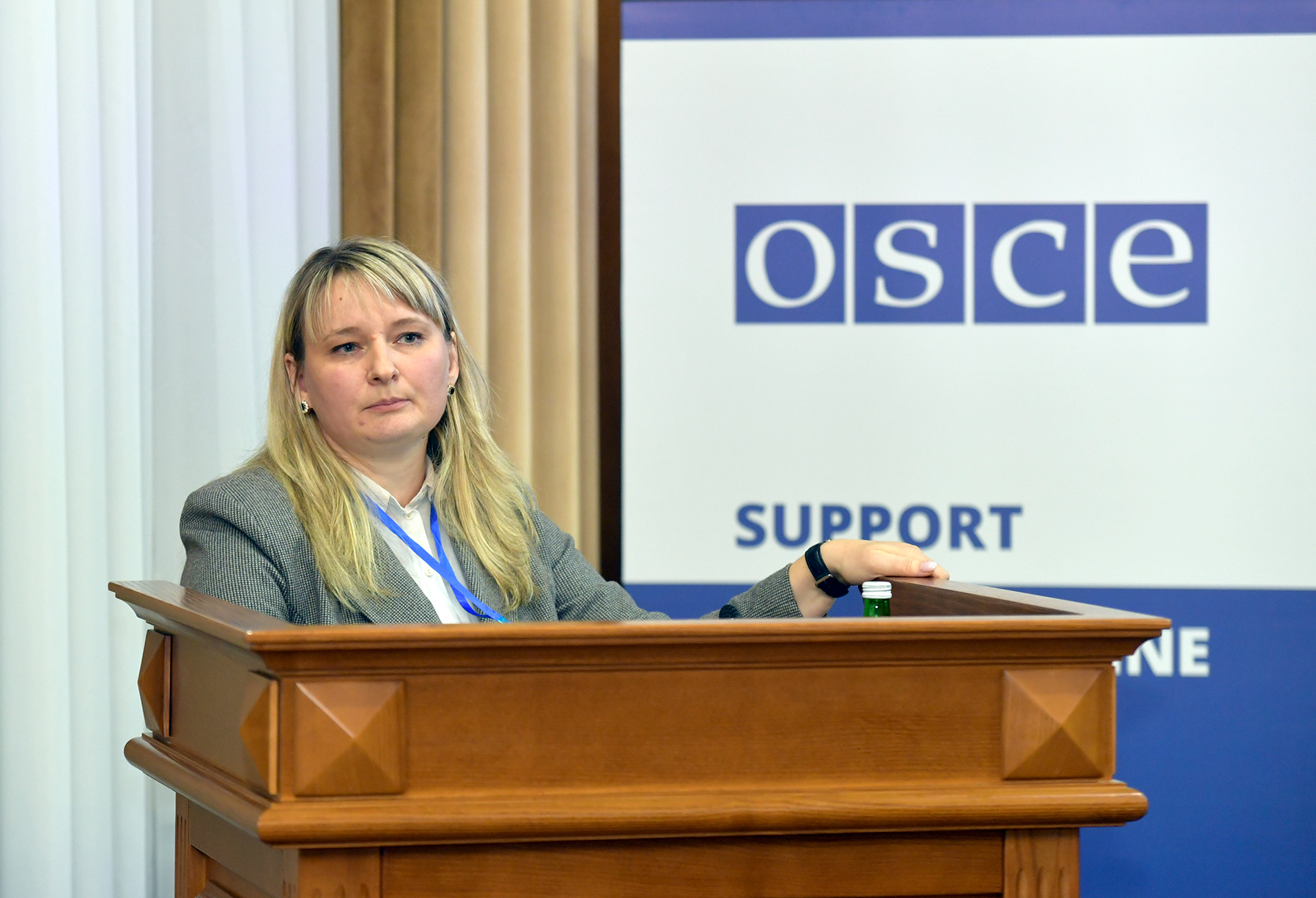
At the end of the event, participants took part in a final discussion.
The event was organised by the Supreme Court, the High Anti-Corruption Court, the OSCE Support Programme for Ukraine and the V. M. Koretsky Institute of State and Law of the National Academy of Sciences of Ukraine.
The video of the polylogue can be found here: https://youtube.com/live/hNP-CtKI8ow?si=kJZ2vYAYNUVDI1gH.